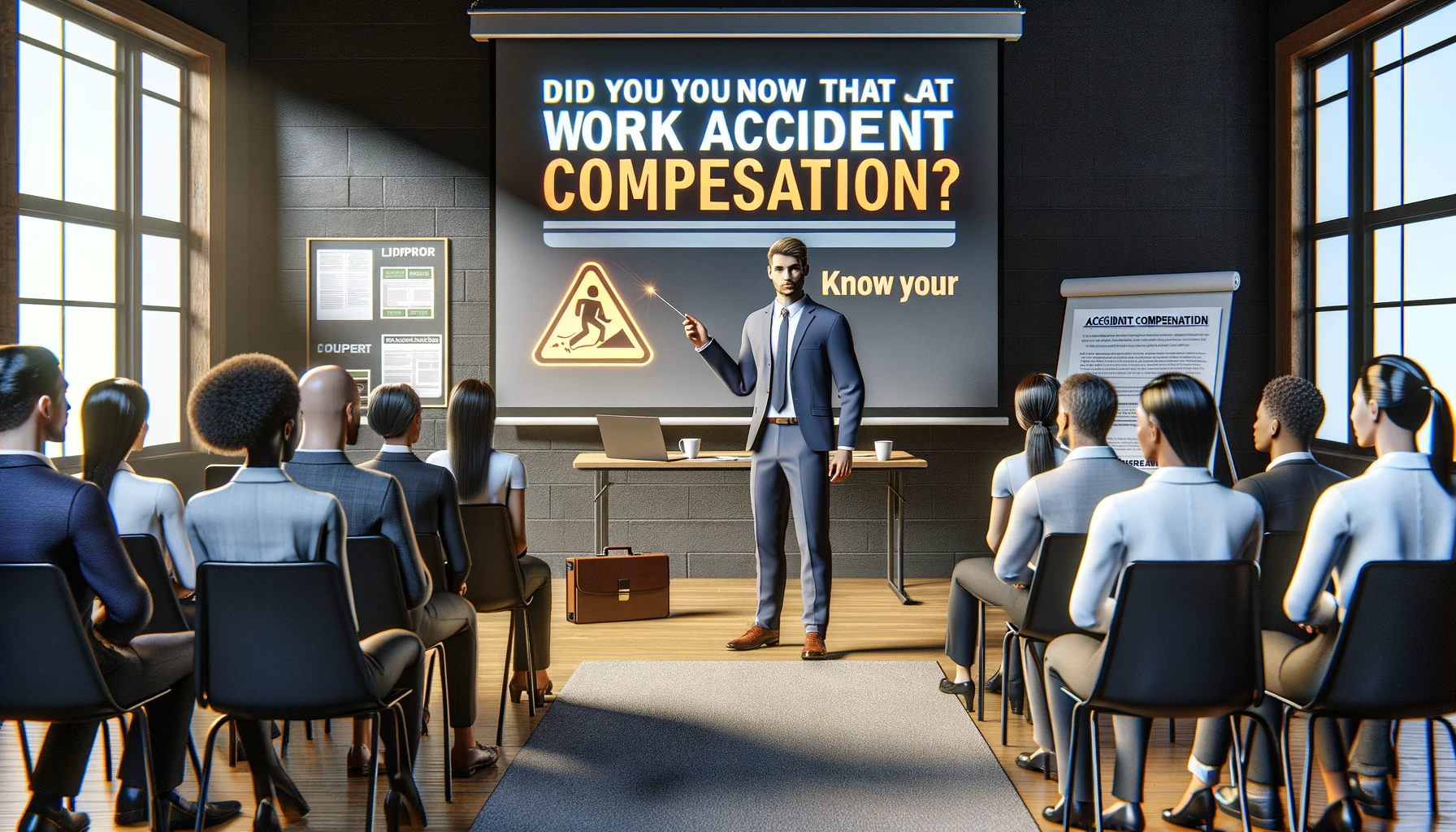When it comes to the workplace, safety is paramount. But accidents can happen, and when they do, it's crucial for workers to know their rights. Understanding your employee compensation rights and what steps to take can make a significant difference in navigating the aftermath of a workplace incident. This article will guide you through the labyrinth of workplace injury claims, occupational accident benefits, and more, ensuring you're well-informed and prepared.
Understanding Workers' Compensation
Workers' compensation is a form of employee compensation rights designed to aid employees who get injured on the job. It's a system that provides financial benefits to workers who suffer work-related injuries or illnesses. Workers' compensation eligibility varies by state and country, but generally, most employees are covered from their first day of employment. This insurance aims to cover medical expenses, lost wages, and rehabilitation costs without the need for litigation.Making a Workplace Injury Claim
If you've had the misfortune of experiencing a workplace accident, it's essential to act promptly. Seek medical attention immediately, and notify your employer as soon as possible. Documenting the incident thoroughly is key to filing effective workplace injury claims. You'll need to fill out specific forms and provide evidence of the accident and its repercussions on your health and ability to work.Occupational Accident Benefits
After an accident, occupational accident benefits serve as a lifeline for employees. These benefits can include coverage for medical treatments, compensation for permanent injuries, and disability payments if you're unable to return to work temporarily or permanently. The specifics of these benefits depend on the workers' compensation policy and the severity of the injury.Legal Rights Following a Job Injury
Your job injury legal rights are protected under employment law. These laws ensure that workers who are injured on the job are not dismissed unfairly and are compensated appropriately. They also provide a framework for employees to return to work when they're able, sometimes with reasonable accommodations.Worker's Insurance Coverage
Worker's insurance coverage is typically provided by the employer and is a critical component of the financial safety net for employees. This coverage ensures that employees don't bear the full brunt of medical expenses and lost wages due to work-related injuries. It's important to understand the details of your insurance policy and the process for filing a claim.Workplace Safety Regulations
Employers are bound by workplace safety regulations to provide a safe working environment. These regulations are designed to prevent accidents from occurring and to ensure that employers take reasonable steps to protect their employees. Non-compliance can result in legal consequences and increased liability for employers.On-the-Job Accident Entitlements
Understanding your on-the-job accident entitlements is crucial. These entitlements can include immediate medical attention, compensation for time off work, and access to rehabilitation services. It's important to be aware of your rights to ensure you're receiving all the benefits you're entitled to.Employer Liability and Responsibilities
In the event of a workplace accident, employer liability for injuries becomes a focal point. Employers are generally responsible for maintaining a safe work environment and can be held liable if negligence is proven. They must also report the accident to the relevant authorities and cooperate with any investigations.Reporting and Documenting Incidents
Reporting workplace incidents promptly is not only a legal requirement but also a critical step in the claims process. Proper work-related injury procedures include reporting the incident to your supervisor, seeking medical attention, and keeping detailed records of everything related to the accident and your injuries.Maintaining Workers' Health and Safety Rights
Every worker has fundamental workers' health and safety rights, which include the right to a safe work environment and the right to refuse unsafe work. Safety standards for employees are set by law and must be upheld by employers. As a worker, you should be aware of these standards and your rights to ensure your safety and well-being.Conclusion
Knowing your rights as a worker in the event of a workplace accident is not just about being prepared; it's about ensuring your safety, health, and financial stability. Whether it's understanding your insurance coverage, navigating the claims process, or standing up for your health and safety rights, being informed is your first line of defense. Remember, your well-being is worth fighting for, so never hesitate to exercise your rights and seek the support you deserve.Look for an attorney who has the right legal resources for your legal needs.
Contact us here on the Warmuth Law website or through our hotline 888-517-9888.










